Fears of Tuvalu turning to recognition of China
Tuvalu’s ambassador in Taipei fears that after its election next week his country could follow Nauru and switch recognition to Beijing.
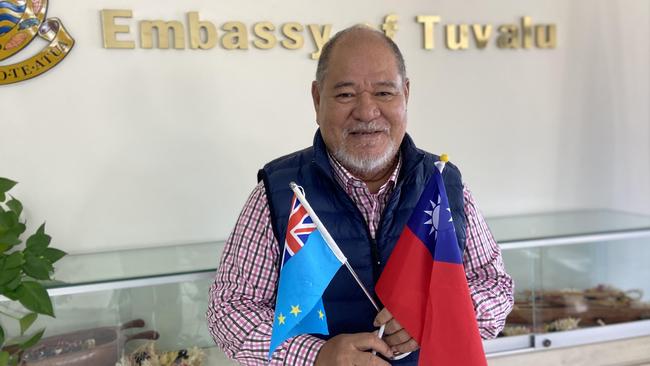
China has embarked on an extraordinary push into the Pacific after Taiwan’s election, with Tuvalu’s ambassador in Taipei telling The Weekend Australia there are fears that after its election next week his country could follow Nauru and switch recognition to Beijing.
The warning comes as Taiwan’s Foreign Minister called for Canberra to step up co-operation with Taipei and gave The Weekend Australian his most detailed account of the promise of “unlimited assistance” Beijing made to secure Nauru.
Xi Jinping’s government has intensified its global campaign to isolate Taiwan since its election last Saturday. China is smouldering after Taiwan’s 23 million people defied warnings from Beijing and elected independence-leaning William Lai as its president.
Tuvalu ambassador Bikenibeu Paeniu told The Weekend Australian “sources from Tuvalu” had told him the micronation could follow Nauru and switch diplomatic recognition to Beijing after its election on January 26, next Friday.
“Rumours now are going that (Tuvalu) will follow suit,” Mr Paeniu said in an interview at his office in Taipei.
The former Tuvalu prime minister called on Australia and its allies and partners to closely watch the situation and to step up their support of the island nation.
“They should be serious. They should be proactive. They should do their part,” he said.
Mr Paeniu said Beijing had been highly active in Tuvalu since the Pacific country’s last election in late 2019.
After that election, Tuvalu’s then foreign minister revealed that Chinese companies had made approaches about working on a $600m ($US400m) artificial island project.
The Pacific Island nation of 11,000 people is at extreme risk of being submerged in the coming decades as sea levels rise.
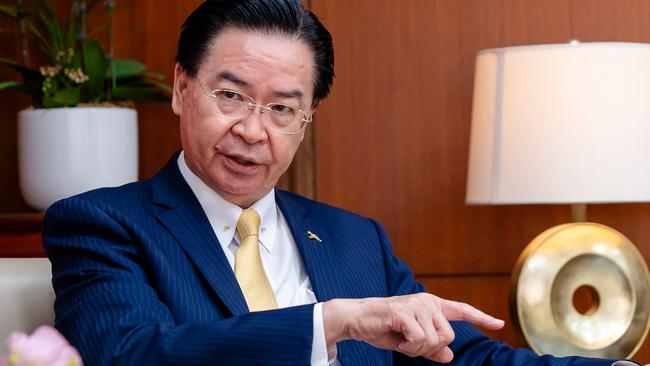
The Chinese offer was rebuffed, but sources in Taipei have said a similar proposal has been made again in the lead-up to next week’s election.
“China has not just been sitting around … It’s really sad how one nation and government try to impose their mindsets and way of life,” Mr Paeniu said.
Nauru’s sudden switch to Beijing was revealed on Monday, less than 48 hours after Taiwan’s election.
It leaves Taiwan with just 12 formal diplomatic allies.
In his first media interview after the switch, Taiwanese Foreign Minister Joseph Wu told The Weekend Australian the amount Beijing had promised to pay Nauru was higher than had been reported.
Mr Wu said Beijing had promised Nauru more than just the payment to cover a budget cut left by the reduced use of Australia’s offshore immigration processing facility, worth around $125m a year.
“China has promised the difference of that financial income out of the refugee processing centre, and also told the Nauru elite, or Nauru leader, that they would give everything that the Nauruan government would request,” Mr Wu said, in an interview in the Foreign Ministry’s headquarters in Taipei.
“It’s a promise of unlimited assistance to Nauru.”
Funding for the Australian asylum-seeker processing centre on Nauru varies depending on how many people are detained. In recent years, around $350m a year has been budgeted for the centre, down from $485m when there were more asylum-seekers there.
Taiwan’s top diplomat said Taipei, Canberra and Washington had been in discussions about how to address the funding fall, which had left a major hole in Nauru’s budget.
“This is not the fault of Taiwan, Australia, or the United States – it’s simply that China grabbed the opportunity,” Mr Wu said.
He said Taipei was not aware of any bribes given to politicians in Nauru, but noted Beijing has a long track record of “elite capture”.
“China is using those kinds of opportunities to influence elites through some not-so-legal means – business opportunities, or bribes, or things like that,” Mr Wu said.
A Chinese Foreign Ministry spokeswoman in Beijing this week denied claims China had engaged in “dollar diplomacy”.
China’s ambassador to Australia, Xiao Qian, on Wednesday called on Canberra to work with Beijing in the Pacific, as part of his pitch to move the relations “beyond stabilisation”.
Nauru is the 10th country to cut diplomatic ties with Taipei since Tsai Ing-wen, of the Democratic Progressive Party, was elected Taiwan’s president in 2016. Taiwan now has only three diplomatic allies in the Pacific: Tuvalu, Palau and Marshall Islands.
The election of the DPP’s Mr Lai to replace Dr Tsai as President means Beijing is expected to go to unprecedented lengths to try to reduce Taiwan’s allies to single digits.
The DPP’s proudly Taiwanese identity infuriates Beijing, whose Communist Party leaders believe it is working to formalise Taiwan’s independence from China.
A retired senior Taiwanese Foreign Ministry official told The Weekend Australian he expected another “one or two” of Taiwan’s allies to be poached by China in the coming months.
Taipei is now on high alert about China’s efforts to switch Tuvalu after next Friday’s election.
Taiwan’s Foreign Minister welcomed Canberra’s new Falepili Union agreement with Tuvalu, which allows the Pacific Island country’s citizens to live, work and study in Australia.
He told The Weekend Australian there had been “a lot more co-ordination and co-operation” between Taipei and Canberra after Solomons Islands and Kiribati both switched recognition to Beijing in 2019.
“After Nauru, I think we should understand that Taiwan and Australia need to work with each other more,” Mr Wu said.
There are no political parties in Tuvalu, whose parliament is made up of 16 independent MPs, making its post-election direction difficult to forecast.
Mr Paeniu said he hoped the next 16 members of parliament would be “leaders for the people and not for China”.
The former prime minister said it was hard to know what Beijing was up to in the Pacific.
“A lot of its dealings are not transparent. Things are behind the doors,” he said.
As the “third father” of his nation, Mr Paeniu said he was sad at the thought of proudly Christian Tuvalu aligning itself with a country, China, that restricts freedom of worship.
Mr Paeniu said that would be a breach of the nation’s motto: “Tuvalu mo te Atua” (“Tuvalu for the Almighty”).
He said he was working with Taiwan officials on “ESG and blue carbon” projects that allowed a “very dignified way” to develop the country. “If we pursue this platform, we don’t need China,” he said.
Mr Paeniu said he was concerned about reports of Beijing bribing political figures in the Pacific. “And this may be also happening in Tuvalu. But you know, God sees everything.”


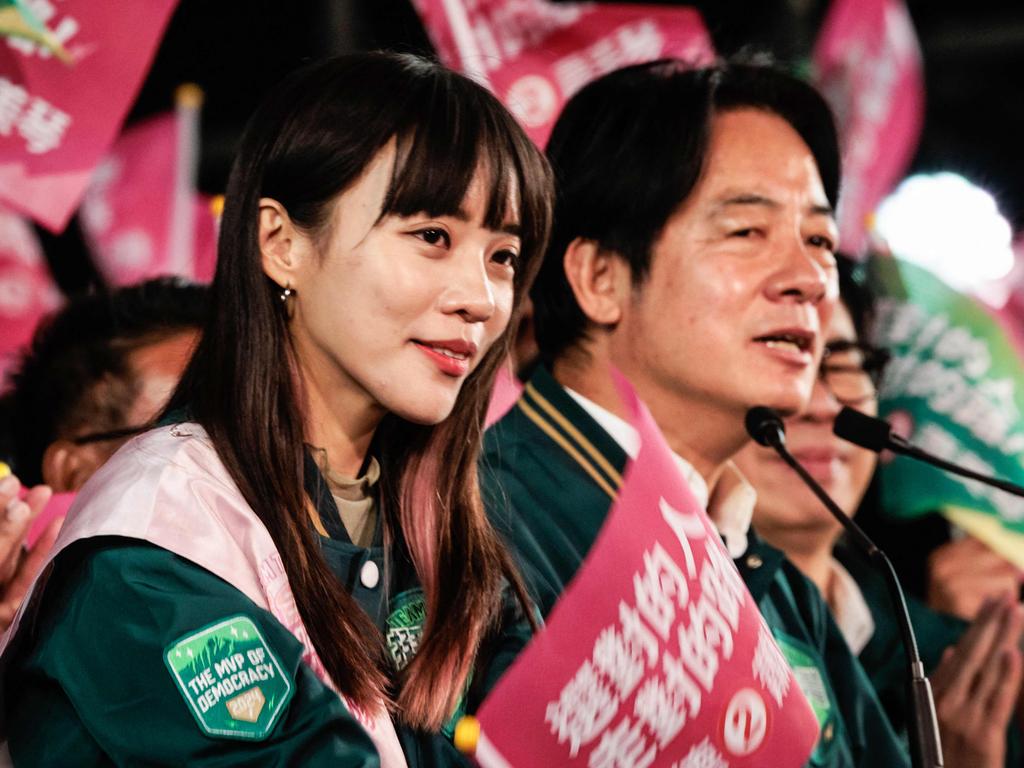
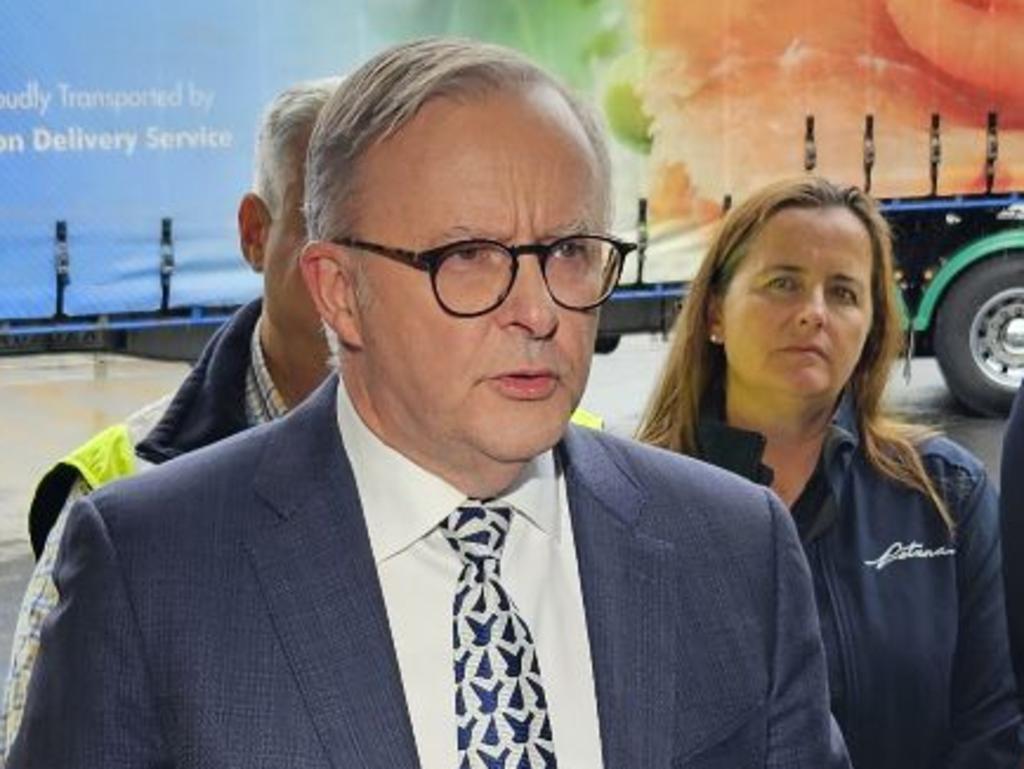
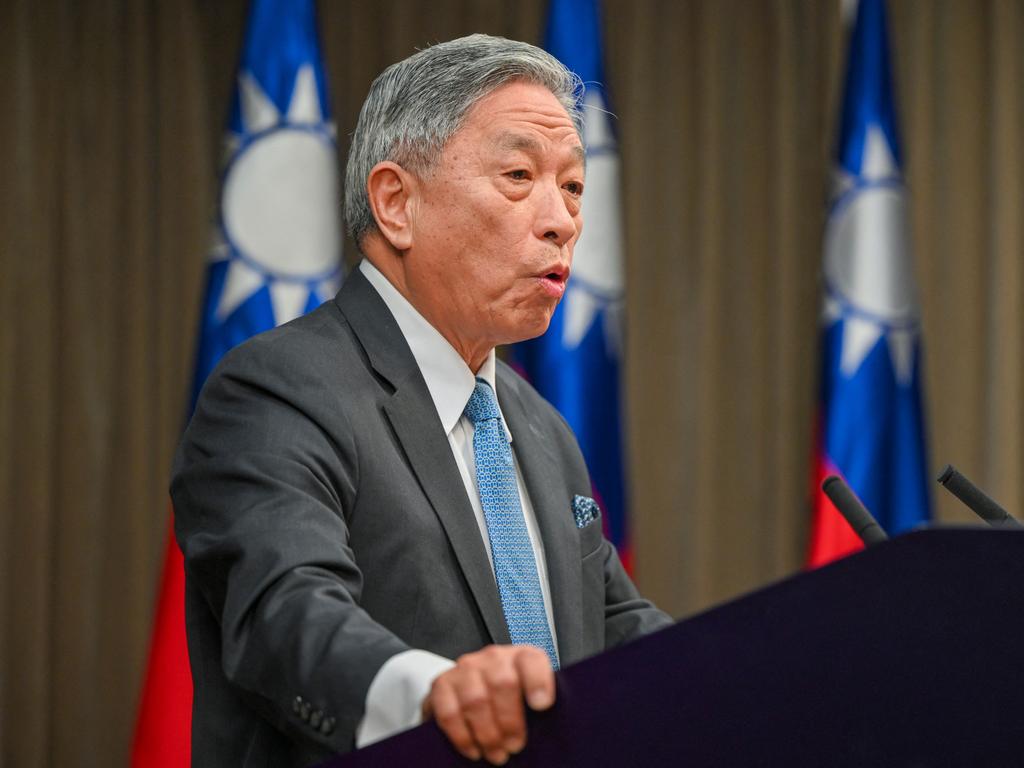



To join the conversation, please log in. Don't have an account? Register
Join the conversation, you are commenting as Logout